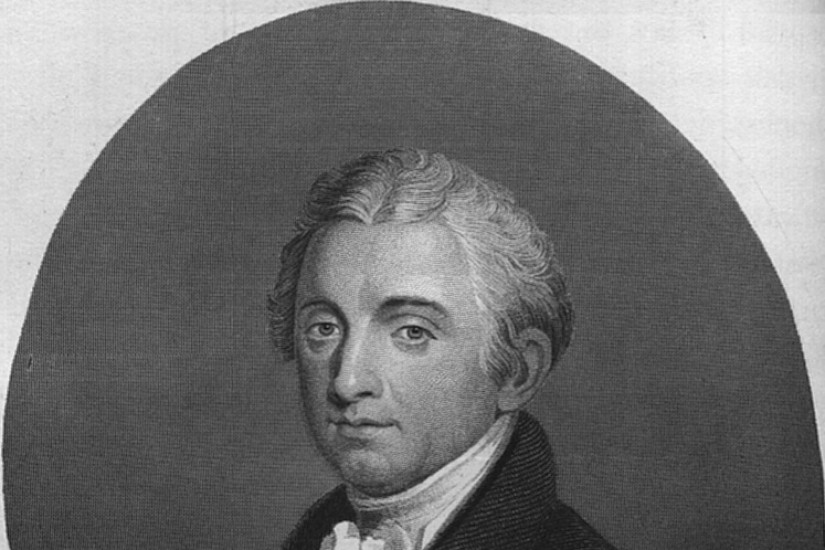In arguing for a narrow view of impeachment, Alan Dershowitz, one of President Trump’s lawyers, informed the Senate: “The Constitution requires in the words of Gouverneur Morris, ‘That the criteria for impeachment be enumerated and defined.’” Morris’s contribution to the Constitutional Convention appears to be Exhibit A in the Trump defense team’s challenge to the longtime consensus among experts that the Founders intended impeachment to be a check on the abuse of power.
But while Morris has been invoked repeatedly to support the proposition that impeachment should be limited to crimes, in fact by the end of the Constitutional Convention, this oft-forgotten Founder had become a champion of the view that impeachment had to be a broad-ranging check on the president. Senators would be wise to consider Morris’s wisdom — and draw inspiration from his ability to change his mind — as they make their final judgments on the case for Trump’s impeachment.
Although Morris, a Pennsylvania delegate to the Constitutional Convention, has been largely forgotten, he was a dominant figure at the 1787 convention. He spoke more often than anyone else — more than George Washington, Benjamin Franklin or even James Madison, who is often called the Father of the Constitution. Morris was the author of the convention’s final draft of the Constitution. Among other immortal phrases, he crafted the striking first words of the preamble, “We the People of the United States.”
He was also physically unforgettable. He had a peg leg and stood at 6 foot 4. In fact, many iconic statues of Washington actually depict Morris’s body, since the French sculptor Jean-Antoine Houdon used Morris as Washington’s body double. He was witty, irreverent, a brilliant orator and, in the words of both Alexander Hamilton and Madison, a genius.
Perhaps most important, although Trump’s defense counsel have missed it, he was someone who changed his mind when he heard new evidence and powerful arguments. Madison praised him for his willingness to recognize when others were right. Madison wrote, “It is but due to Mr. M. to remark that to the brilliancy & fertility of his genius, he added what is too rare, a candid surrender of his opinions when the lights of discussion satisfied him that they had been too hastily formed."
And impeachment was one of the issues about which Morris changed his mind during the course of the convention.
Morris began the deliberations a great champion of a powerful president. Early in the convention, he argued against impeachment of the president under any circumstances because “it will render the Executive dependent on those who will impeach.” He was worried that Congress would use impeachment as a tool to control the president.
But George Mason and Benjamin Franklin challenged Morris. “Shall any man be above Justice?” Mason asked. Franklin argued that impeachment promised a path “for the regular punishment of the Executive when his misconduct should deserve it” and also allowed “for his honorable acquittal when he should be unjustly accused.” They convinced Morris that some form of impeachment would be appropriate, but only in select circumstances. “[C]orruption & some other offences to be such as ought to be impeachable; but thought the cases ought to be enumerated & defined,” Morris declared, and this is the language invoked by Dershowitz.
But Madison pressed for more, contending that a broad range of conduct should be grounds for impeachment. Madison argued that it was “indispensable that some provision should be made for defending the Community agst the incapacity, negligence or perfidy of the chief Magistrate.”
This argument made sense to Morris, who informed his fellow delegates that his “opinion had been changed by the arguments used in the discussion.” Morris had come to believe that, far from being limited to crimes, the president should be impeached “for treachery; Corrupting his electors, and incapacity.”
Morris had changed his mind because the debates led him to realize that impeachment was a critically important tool for ensuring that the president did not abuse his power. “This Magistrate [the president] is not the King but the prime-Minister. The people are the King,” Morris declared.
The Founders had revolted against a king to preserve their freedoms. Morris, reflecting on the arguments of his fellow delegates, recognized that impeachment had to cover a broad range of abuses to safeguard the supremacy of the people against such tyranny.
And, in our time of fierce partisan divide, it is worth remembering Morris, not simply for his views on impeachment, but for the example he set: He listened to others and was open to changing his mind.
Dershowitz and others on Trump’s defense team have eagerly repeated Morris’s initial ideas about impeachment to suggest that much of the president’s conduct should be beyond the reach of the impeachment process. But by ignoring Morris’s evolution on this issue, they provide a misleading case about the Founders’ views on impeachment. And their invocation of Morris suggests that he is someone who held firm to the defense team’s position, when in reality, he is an extraordinary example of the importance of openness to the arguments of opponents.
Paying attention to how Morris’s thinking changed on the impeachment issue offers critical lessons to the Senate today. First, he listened with an open mind and was persuaded to adapt his view. And second, he came to appreciate the fact that in America, the people are sovereign and the president must not be above the law.
